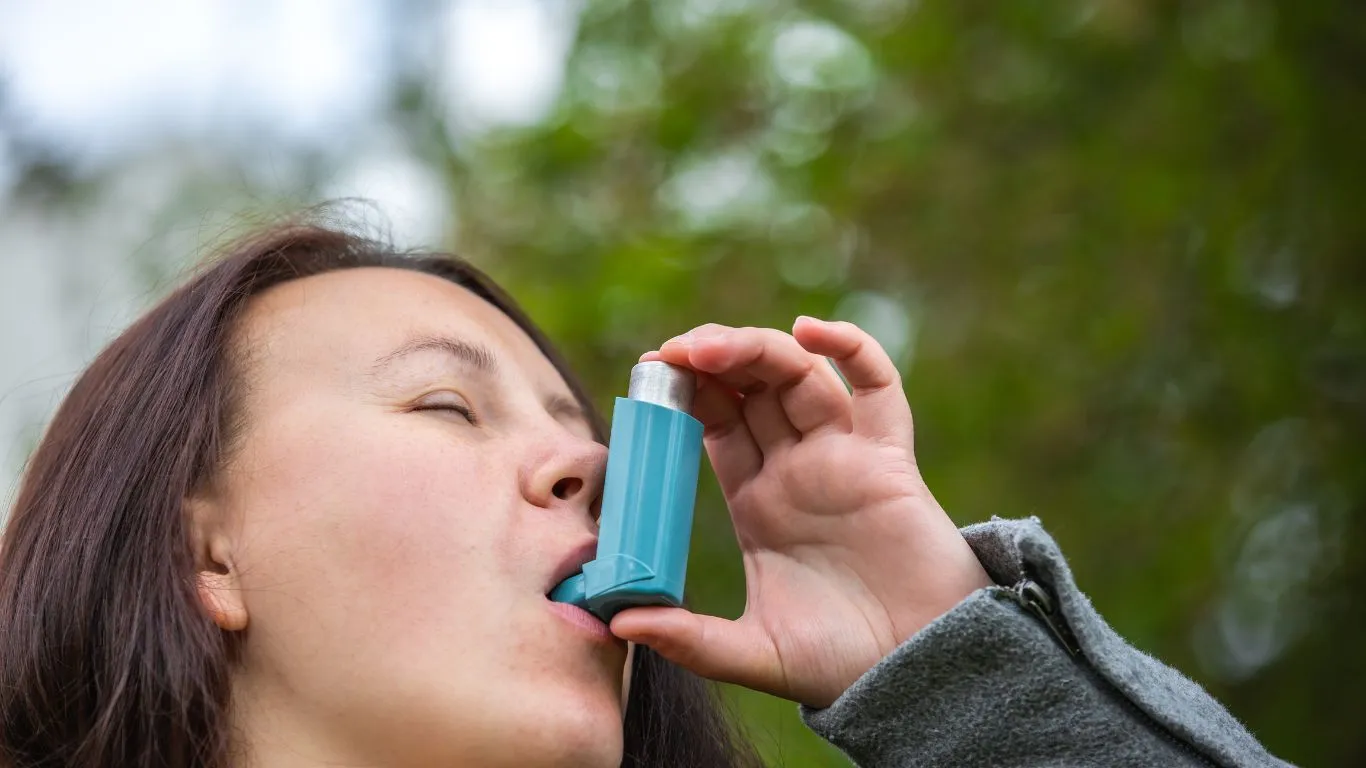Discover Powerful Benefits of Eucalyptus Oil for Asthma Relief Today
As a pulmonary nurse practitioner, I’ve seen firsthand how chronic conditions like asthma can wear people down—not just physically, but emotionally, too. One question I get a lot from patients is whether natural remedies can actually make a difference. And honestly? Some of them can. That’s especially true when it comes to the benefits of eucalyptus oil for asthma. If you’re anything like me, you’re always on the lookout for ways to breathe easier—literally and figuratively. So, let’s chat about how this minty, powerful oil might help you (or your patients) catch a deeper, easier breath.
What Is Eucalyptus Oil Anyway?

Let’s not overcomplicate it—eucalyptus oil comes from the leaves of the eucalyptus tree, native to Australia but now grown all over the world. The key active ingredient is called eucalyptol (also known as cineole), and this stuff is basically magic when it comes to respiratory relief. It has natural anti-inflammatory, decongestant, and antimicrobial properties. You’ll find it in chest rubs, steamy showers, and even lozenges.
But it’s not just “trendy” or “natural.” There’s actual research behind its effects, which I’ll touch on more in a bit. For now, let me just say that I’ve had patients who’ve added eucalyptus oil to their daily routines—whether through steam inhalation or diluted chest applications—and have noticed some pretty significant differences in their breathing patterns and flare-up frequency.
How Eucalyptus Oil Supports Asthma Management

Reduces Airway Inflammation
Here’s the deal—when you have asthma, your airways are always on high alert. Even minor irritants can cause them to swell and tighten, making it feel like you’re breathing through a straw. What’s cool about eucalyptus oil is that it helps calm that inflammation. Thanks to eucalyptol, it can suppress cytokine activity, which are the little chemical messengers that trigger inflammation.
I’ve had patients tell me that after using eucalyptus steam once or twice a day (especially in the colder months), they experienced fewer “tight chest” episodes. That’s not to say it replaces your rescue inhaler—never!—but it can be a supportive therapy for symptom management.
Acts as a Natural Decongestant
Ever feel that sticky, suffocating chest congestion that just won’t quit? Eucalyptus oil can help break up mucus, making it easier to expel. This is especially helpful during asthma attacks that are triggered by upper respiratory infections.
- Add a few drops to a bowl of hot water, cover your head with a towel, and inhale the steam for 5–10 minutes.
- Use it in a diffuser while you sleep to keep airways open overnight.
- Mix it with a carrier oil (like coconut or olive oil) and rub it on your chest or back.
I always tell my patients: listen to your body. If steam inhalation feels too intense or causes irritation, back off and try a more diluted method.
Supports Antimicrobial Defense
Another underrated benefit of eucalyptus oil for asthma is its ability to fight off bacteria and viruses that often trigger flare-ups. I’ve seen folks with frequent bronchitis-related asthma episodes reduce their infection rate when they incorporate eucalyptus oil into their routine. Again, this isn’t a cure-all, but when used alongside evidence-based treatments, it can make a difference.
- Use it in your home cleaning routine to reduce airborne allergens and microbes.
- Try it in a personal inhaler or nasal balm for regular immune support.
From a clinical standpoint, it’s encouraging to see more holistic approaches blending with conventional care. I’ve always believed in combining the best of both worlds, and eucalyptus oil fits right into that philosophy—when used wisely and safely.
Is It Safe for Everyone?

Quick reality check: not every natural remedy is safe for every person. With eucalyptus oil, you’ve got to be careful, especially with young children, people with epilepsy, or anyone with sensitivities to strong scents. I always recommend a patch test before applying it topically and starting with a low concentration (no more than 1-2% dilution in a carrier oil).
If you’re pregnant, nursing, or managing other chronic conditions, always talk to your healthcare provider before diving in. And just to repeat—eucalyptus oil is not a replacement for your prescribed asthma medication. Think of it more like a co-pilot: helpful, but not the one flying the plane.
Different Ways to Use Eucalyptus Oil for Asthma Relief

So, you’re probably wondering—“Alright, I’ve got this bottle of eucalyptus oil… now what?” Great question! Over the years, I’ve experimented with several ways to work it into daily routines for my patients and even in my own home. And honestly, some methods work better for certain folks depending on how their asthma presents. Here are some of the most effective options:
1. Steam Inhalation (My Go-To Recommendation)
Still one of my favorite methods. Super simple and fast-acting. Just boil a pot of water, pour it into a bowl, add 2–3 drops of eucalyptus oil, and carefully inhale the steam under a towel. Aim for about 5–10 minutes. I recommend this to patients who experience chest tightness or nasal congestion—it really loosens things up fast.
Pro tip: Always keep your eyes closed during this. Trust me, the vapors sting if they get too close!
2. Diffusing It Around the House
If steam inhalation feels too intense or time-consuming, diffusers are the next best thing. They slowly disperse the oil into the air, which can help reduce airborne triggers like dust or pollen and gently open up airways over time.
I keep a diffuser in my bedroom and run it at night with a mix of eucalyptus, lavender, and a drop of peppermint. It helps me breathe easier while I sleep—and I wake up feeling more refreshed, especially in allergy season.
3. Chest Rub (DIY-Style)
You can absolutely make your own chest rub with a bit of eucalyptus oil and a carrier oil like coconut or almond oil. Just mix 2-3 drops into a tablespoon of the carrier and rub it onto your chest and upper back. It’s not only soothing but also gives you that comforting warmth that helps you breathe easier when symptoms flare.
- Safe for adults and older kids (just be cautious with little ones).
- Avoid contact with eyes, mucous membranes, and broken skin.
When to Avoid Eucalyptus Oil (Yes, There Are Some Limits)

Alright, I wouldn’t be doing my job as a healthcare provider if I didn’t mention the risks, too. While eucalyptus oil can be incredibly helpful, it’s definitely not for everyone. Here’s when to think twice before using it:
- For kids under 2: Their airways are super sensitive. Even small amounts can be too strong and cause respiratory distress.
- If you have a history of seizures: Eucalyptus can be a trigger for some individuals with epilepsy or seizure disorders.
- When you’re on certain meds: Because eucalyptus can interact with medications (like for diabetes or high blood pressure), always talk with your provider first.
I always tell my patients to treat essential oils with the same respect they would any other active treatment. Natural doesn’t mean risk-free.
What the Research Really Says

If you’re the kind of person who likes the science behind the claims (like I am), there’s growing evidence to support eucalyptus oil’s role in respiratory care. Several small studies have shown that eucalyptol helps reduce bronchial inflammation and may improve lung function in individuals with chronic respiratory conditions—including asthma.
One study I often reference with patients was published in a peer-reviewed respiratory journal and involved participants with moderate asthma. Those who used eucalyptol supplements alongside their regular medications experienced less wheezing and reduced reliance on rescue inhalers. That’s huge!
Now, that doesn’t mean you should go swapping out your meds for eucalyptus capsules—absolutely not. But it does reinforce that this isn’t just a feel-good remedy. There’s real, measurable action happening at the cellular level.
Let’s Talk Real-Life Results
Over the years, I’ve had patients who were skeptical at first but saw actual improvements after a few weeks of consistent eucalyptus use. I’m talking about better sleep, fewer nighttime awakenings, and even improved peak flow readings. Of course, it’s not a one-size-fits-all solution—but when it works, it really works.
One of my longtime patients, a retired teacher in her 60s, swears by a blend of eucalyptus and frankincense in her nightly diffuser. She used to wake up coughing at 2 a.m. most nights. Now? She sleeps like a baby and hasn’t had to use her rescue inhaler in the middle of the night for months.
Combining Eucalyptus Oil with Other Natural Remedies
Sometimes, the best results come from combining multiple gentle strategies. Eucalyptus oil works well alongside:
- Honey and warm tea: Helps soothe irritated throats and airways.
- Himalayan salt inhalers: Used alongside eucalyptus oil diffusers to keep airways open.
- Breathing exercises: Think Buteyko or pursed-lip breathing—great tools that complement oil therapy.
It’s about creating a toolkit. When asthma hits from all angles, we need to respond with multi-angle support. And honestly, empowering patients with a few safe, easy natural strategies can go a long way in making them feel more in control of their condition.
Tips for Safely Incorporating Eucalyptus Oil into Your Asthma Care

By now, you’re probably excited to try eucalyptus oil—but before you jump in, let’s talk about some practical tips to keep things safe and effective. From my years as a pulmonary nurse practitioner, I’ve learned that success with natural remedies often comes down to thoughtful use and listening to your body.
Start Small and Go Slow
If you’re new to essential oils or eucalyptus specifically, always begin with the smallest dose possible. For example, start with one drop in a diffuser or a single drop diluted in a carrier oil for topical use. This helps minimize the chance of irritation or allergic reactions.
Never Apply Neat Oil Directly to Skin
This one’s a biggie. Eucalyptus oil is potent and can cause skin burns or rashes if applied undiluted. A simple mix of 1-2% eucalyptus oil in coconut or jojoba oil usually works well for most adults.
Use Quality, Pure Eucalyptus Oil
Not all oils are created equal. I always advise patients to invest in high-quality, therapeutic-grade eucalyptus oil from reputable brands. Look for oils that are 100% pure and preferably organic, with clear labeling of the species—Eucalyptus globulus is the most common for respiratory use.
Incorporate Eucalyptus Oil into Your Asthma Action Plan
Remember, eucalyptus oil is a complementary tool, not a replacement for your prescribed asthma medications. Make sure your healthcare provider knows you’re using it, especially if you experience changes in symptoms. If you notice worsening breathing issues or new symptoms after using eucalyptus oil, stop immediately and consult your provider.
Personal Reflections: Why I Recommend Eucalyptus Oil with Caution and Care

Over the years, I’ve seen how chronic respiratory issues can take a toll on a person’s quality of life. When you’re struggling just to catch a breath, it’s natural to want to try everything—especially natural options that sound gentle and safe.
From my professional standpoint, eucalyptus oil offers real promise, but it’s not a miracle cure. It’s a tool that can support traditional asthma care when used thoughtfully. I always encourage patients to be open with their providers about any complementary therapies they use. This partnership is crucial.
In my practice, I’ve had many success stories where eucalyptus oil made a noticeable difference in symptom relief, improved sleep, or reduced the frequency of minor flare-ups. It’s these small wins that add up to better overall control and a brighter outlook.
Final Thoughts on the Benefits of Eucalyptus Oil for Asthma
To sum it all up without sounding too formal (because, hey, we’re keeping it real here): eucalyptus oil can be a great ally in asthma management when you:
- Understand how and when to use it safely
- Combine it with your prescribed medical treatments
- Choose high-quality oils from trusted sources
- Pay close attention to how your body responds
By doing this, you’re not just chasing quick fixes—you’re building a thoughtful, holistic approach to support your lungs and your lifestyle.
References
Disclaimer
This article is intended for informational purposes only and does not replace professional medical advice, diagnosis, or treatment. Always consult with your healthcare provider before starting any new treatment or therapy, including the use of essential oils. Individual results may vary, and improper use of eucalyptus oil can cause adverse reactions. If you experience any worsening symptoms or side effects, discontinue use and seek medical attention immediately.

Bianca Nala is a compassionate Nurse Practitioner with a strong background in primary and respiratory care. As a health writer for Healthusias.com, she combines her clinical expertise with a talent for clear, relatable storytelling to help readers better understand their health. Bianca focuses on topics like asthma, COPD, chronic cough, and overall lung health, aiming to simplify complex medical topics without losing accuracy. Whether she’s treating patients or writing articles, Bianca is driven by a single goal: making quality healthcare knowledge accessible to everyone.







